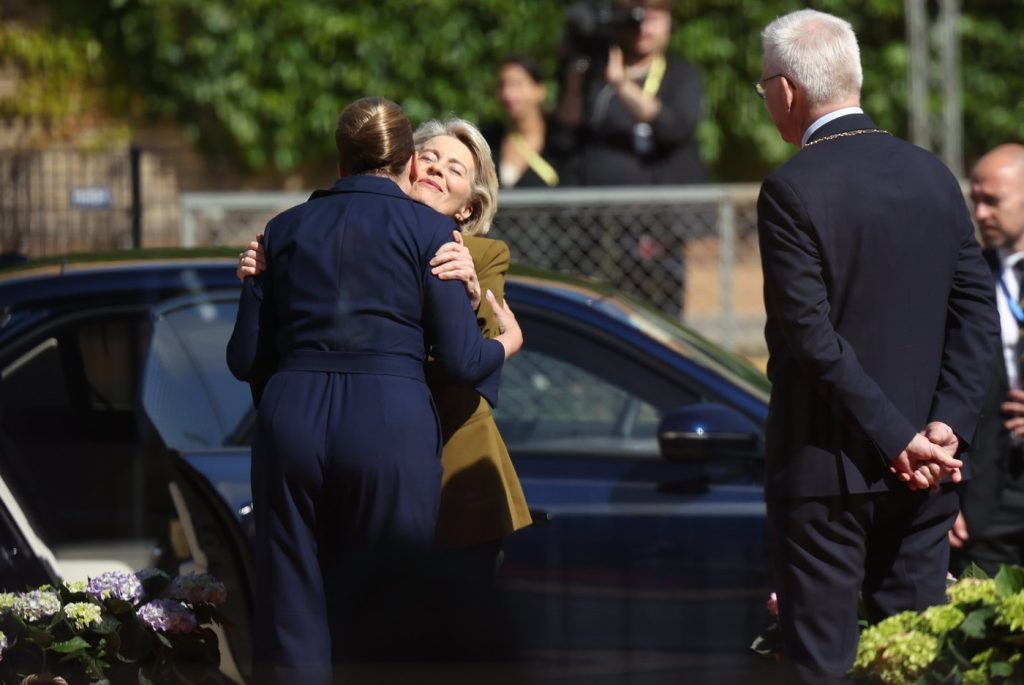AARHUS, Denmark (AP) – Denmark formally started its presidency of the European Union on July 3, 2025, emphasizing the need for Europe to unite in addressing ongoing conflicts, particularly the war in Ukraine, and external pressures stemming from U.S. policies under former President Donald Trump. Danish European Affairs Minister Marie Bjerre stated, “We have war on European soil. We face trade wars, and new tariffs, and we have our closest ally, in the United States, turning increasingly inward. Europe can no longer be in the shadow of the United States. We need now to stand on our own two feet.”
During the inauguration ceremony in Aarhus, attended by Prime Minister Mette Frederiksen and European Commission President Ursula von der Leyen, Denmark highlighted its commitment to foster a strong Europe amid increasing global instability. This presidency marks Denmark’s eighth since joining the EU in 1973, with the motto “A Strong Europe in a Changing World.” The country's agenda focuses on enhancing EU security, boosting economic competitiveness, and addressing climate change, all while navigating significant challenges posed by the ongoing geopolitical climate.
The urgency of enhancing European defense capabilities has become more pronounced as NATO warns of potential Russian aggression towards other European nations within the next three to five years. Denmark aims to ensure that EU nations appropriately invest in defense, setting a target of 5% of GDP by 2030. This strategic plan includes facilitating military equipment purchases and collaborations among member states to bolster NATO’s defense measures.
Another pivotal aspect of Denmark's presidency includes supporting Ukraine and Moldova in their aspirations for EU membership, amidst concerns regarding Russian interference in these nations. However, Hungary’s Prime Minister Viktor Orbán has expressed opposition to Ukraine’s EU membership, suggesting Ukraine should remain a buffer state between Russia and NATO countries. To address this, Denmark intends to leverage “all political and practical means” to persuade Hungary to lift its veto blocking Ukraine's EU accession.
In the economic sphere, with the ramifications of Trump’s trade tariffs still affecting the EU, Denmark plans to expedite trade agreements with non-EU countries, including India, and reduce bureaucratic hurdles to enhance innovation and competitiveness. The upcoming discussions on the EU's long-term budget present another critical challenge, particularly with rising defense expenditures, as member states may be hesitant to increase contributions for broader EU initiatives.
On climate action, Denmark affirms its commitment to the EU's objective of achieving climate neutrality by 2050. This includes setting a target for 2040 to guide necessary climate investments and actions, emphasizing a transition from fossil fuels to renewable energy sources, especially in light of the energy supply shocks due to the war in Ukraine. Denmark aims to simplify agricultural policies to aid farmers in adhering to EU regulations, promoting a business-friendly environment.
Lastly, in addressing migration, Denmark under Prime Minister Frederiksen continues its quest for innovative strategies to manage the influx of asylum seekers. Following a vision of "zero asylum-seekers," the Danish government focuses on deportations and establishing “return hubs” outside of the EU to deter migrants from attempting to enter Europe. Efforts are also set to continue on finalizing the asylum and migration policy pact, designed to address varying approaches among EU countries regarding migration management.











